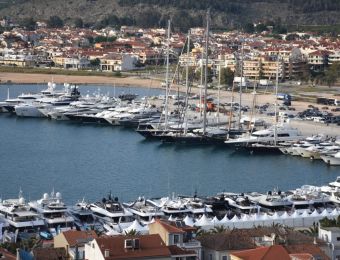Greece May Soon Face Earthquake of 8.5 Magnitude, Scientist Says

Πηγή: PRINT SCREEN/Sky News / YouTube
The seismological forecasts were made during conversations about the impacts of the natural disaster in Turkey and Syria. The professors expressed concerns that a similarly large earthquake could affect Greece sometime in the future.
Speaking in two separate interviews, Professor Konstantinos Synolakis and Professor Costas Papazachos drew similar conclusions when assessing the history of seismic activity in the Greek region.
Speaking to MEGA TV, Konstantinos Synolakis, an academic professor of Natural Disasters, stressed that most of the victims affected by the massive tremors in Turkey and Syria would be in densely populated urban areas, where multi-story high-rise apartments collapsed on top of their inhabitants.
When asked whether an earthquake of a similar magnitude could impact Greece, the professor explained that mega-earthquakes generally occur in the region every 600 or so years.

“The last major earthquake in Crete occurred in 1403 and it is estimated that such earthquakes occur every 600 to 800 years. We are already at the “window” of the century, when we may see a large earthquake in the Greek arc of the order of 8.5 Richter,” Synolakis said.
Costas Papazachos, a professor of seismology at the Aristotle University of Thessaloniki, was asked similar questions during an interview with ERT about the risk of strong seismic activity impacting the Greek region.
He said that Greece did experience earthquakes of a similar magnitude. He cited the 7.5 Richter earthquakes in Amorgos in 1956 and the 7.2 Richter earthquakes in Kefalonia in 1953 as pertinent examples.
However, Greece has experienced even stronger tremors. In 365 AD, Crete was struck by an earthquake with a magnitude of 8.2 or higher. Virtually everything was damaged or destroyed on the island and the subsequent tsunamis caused by the tremors impacted parts of what is today Greece, Libya, Egypt, Cyprus, Itlay, and Spain.

When asked whether earthquakes like the one in Turkey and Syria could be predicted, Papazachos clarified that “we cannot predict exactly when an earthquake will happen”.
This is a position shared by most seismologists who insist that earthquakes cannot be predicted. For example, the Pacific Northwest Seismic Network (PNSN) maintains that “Currently, no one can predict where or when big earthquakes will occur,”
However, most scientists are optimistic that earthquakes can be forecasted, which, according to the University of California Davis, “involves giving a probability of an earthquake in a given area over a period of time, which may be months or years.”
Therefore, the earthquake warnings by the professors should be treated as forecasts, not predictions. Nevertheless, forecasts could give civil authorities in Greece a rough idea as to whether a given region could suffer an earthquake and whether certain precautions should be taken.
“So we have such earthquakes in the Greek area, this should concern us: how will we react and what will be done in the corresponding case?”, Papazachos explained. “At some point, we will experience such an earthquake with modern buildings and we will have to face the consequences”.
There is perhaps a silver lining to this somewhat grim forecast. The professor also commented that earthquakes in the Greek region “generally have limited effects, mainly because they occur in maritime areas”.
Διαβάστε όλες τις τελευταίες Ειδήσεις από την Ελλάδα και τον Κόσμο
























Το σχόλιο σας